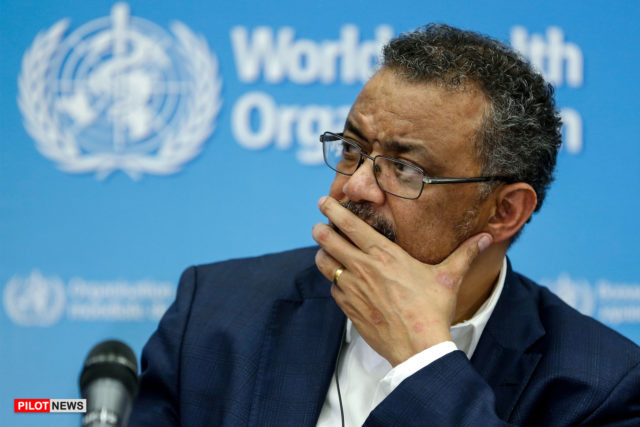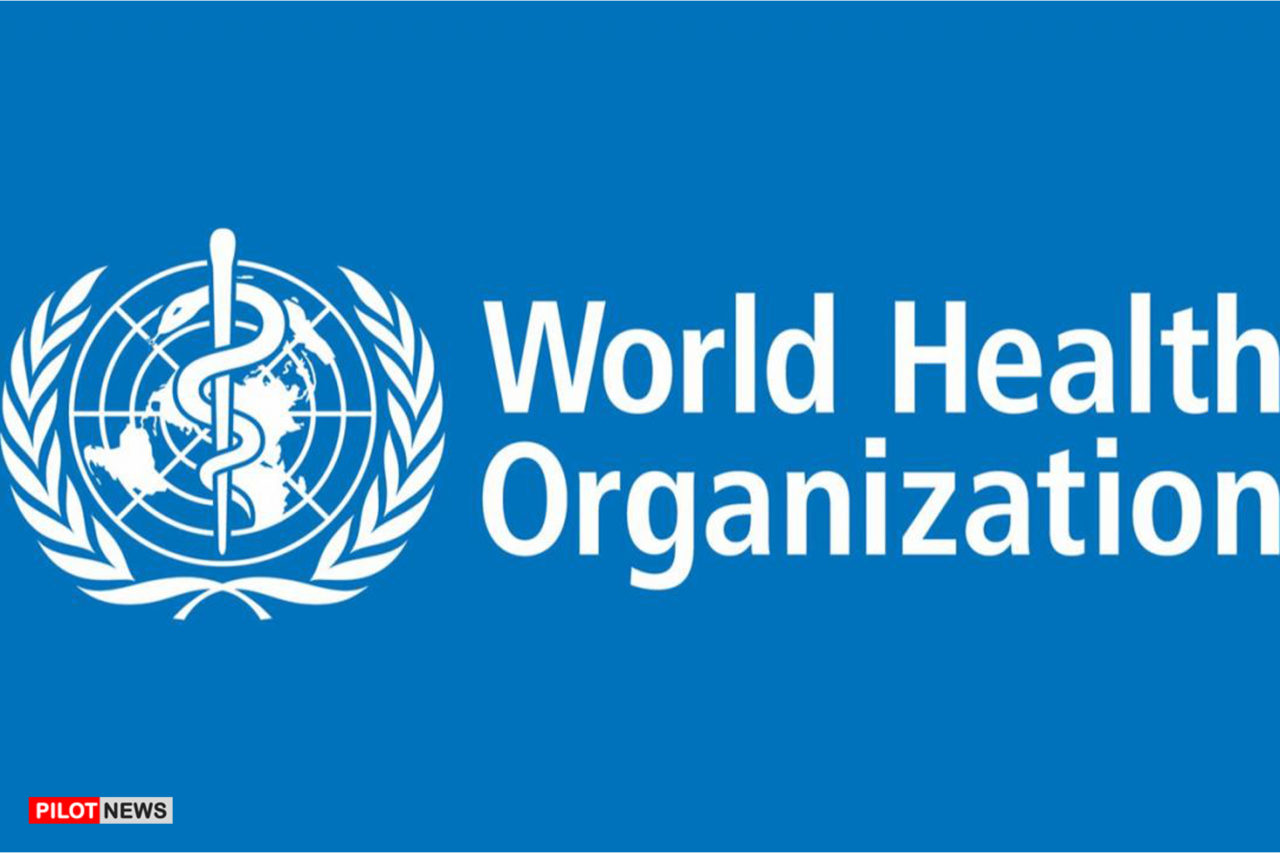Dr. Tedros Ghebreyesus, the Director-General of World Health Organisation (WHO), says leaders from 40 countries have pledged to support research and development for vaccine, diagnostics and therapeutics with 7.4 billion euros.
Ghebreyesus disclosed this at a news conference on Monday in Geneva, explaining that the fund would be used to carry out activities for COVID -19 research and development.

In a speech posted on the WHO website, Ghebreyesus was quoted as saying: “ACT Accelerator, to support the development, production and equitable distribution of vaccines, diagnostics, and therapeutics against COVID-19 was inaugurated 10 days ago.
“Today, leaders from 40 countries all over the world came together to support the ACT Accelerator through the COVID-19 Global Response International Pledging Event, hosted by the European Commission.
“During today’s event, some 7.4 billion euros was pledged for research and development for vaccines, diagnostics and therapeutics.
“This was a powerful and inspiring demonstration of global solidarity.
“Today, countries came together not only to pledge their financial support, but also to pledge their commitment to ensuring all people can access life-saving tools for COVID-19; accelerating development of products, but at the same time, access for all.’’
According to him, recent advances in science are enabling the world to move at incredible speed to develop these tools.
“But the true measure of success will not only be how fast we can develop safe and effective tools – it will be how equally we can distribute them.
“None of us can accept a world in which some people are protected while others are not. Everybody should be protected.
“None of us are safe until all of us are safe.
“The potential for continued waves of infection of COVID-19 across the globe demands that every single person on the planet be protected from this disease,’’ he said.
Ghebreyesus said WHO remained committed to working with all countries and partners to accelerate the development and production of vaccines, diagnostics and therapeutics, and to ensure their equitable distribution.
He said this is an opportunity for the world to come together to confront a common threat as well as to forge a common future; a future in which all people enjoy the right to the highest attainable standard of health and the products that deliver that right.
“That’s what we mean by health for all. We have been saying it for more than 70 years, since WHO was created.
“But I think given the experience we have now and the difficulties we’re going through, it’s time to make it happen: health for all.
“But one of the best tools is also one of the most basic: clean hands.’’ he said.
The director general said the simple act of cleaning hands could be the difference between life and death.
He added that it remained one of the most important public health measures for protecting individuals, families and communities against COVID-19 and many other diseases.
“Tomorrow is Hand Hygiene Day; a reminder of the importance of clean hands for health workers, and for all of us.
“At the same time, we must remember that millions of people around the world are not able to practice this most basic of precautions.
“Around the world, less than two-thirds of health care facilities are equipped with hand hygiene stations, and 3 billion people lack soap and water at home.
“This is an old problem that requires new and vastly increased attention.
“If we are to stop COVID-19 or any other source of infection, and keep health workers safe, we must dramatically increase investments in soap, access to water, and alcohol-based hand rubs,’’ he said.
The News Agency of Nigeria reports that Tuesday also coincides with the International Day of the Midwife.
Ghebreyesus said the Day also provides an opportunity to remember the vital role that midwives play all over the world in providing safe and effective care for women and newborns.
“Research shows that interventions delivered by midwives can avert over 80 per cent of all maternal deaths, stillbirths and neonatal deaths.
“The service of midwives is actually a lifeline for many.
“Childbirth can be one of the most precious moments in a woman’s life, but it can also be one of the most dangerous.
“Midwives are essential for guiding and caring for women through their entire pregnancy, and for the critical moment of childbirth.
“But we need more midwives in all countries, especially low-resource countries,’’ he said.
To mark Hand Hygiene Day and the International Day of the Midwife, Ghebreyesus called people to stop what they’re doing at noon on Tuesday to clap for nurses and midwives.
“To thank them for their role in delivering safe and effective care – especially during this pandemic; they’re risking their lives to give lives to others,’’ he said.
………………………………….
- Korean schools to reopen next week as virus infections fall
South Korea on Monday announced plans to reopen schools starting next week, more than two months after schools were closed in a precautionary measure against the new coronavirus that has infected more than 10,000 here.
Starting on May 20, which is two weeks after key holidays in May, we will push to (reopen schools) in a phased and sequential process,” Education Minister Yoo Eun-hae said at a press briefing.
Under the plan, high school seniors will return to school on May 13, while other grades will return to school gradually in the following weeks.
Students in grade 2 of high school, grade 3 of middle school and grades 1 and 2 in elementary schools will return on May 20, while those in grade 1 of high school, grade 2 of middle school and grades 3 and 4 in elementary schools will go back on May 27.
Students in grade 1 of middle school and grades 5 and 6 in elementary school will return on June 1.
South Korea runs a 6-3-3 school system, which consists of six years of elementary school and three years each of middle school and high school.
Yoo said the government considered several factors, such as having enough time to assess the impact of the long holiday in late April and early May as well as the academic needs of high school seniors.
Key public holidays — such as Buddha’s Birthday, Labor Day and Children’s Day — all fell in late April or early May this year, raising the alert on possible transmissions as people travel across the country.
Yoo added that the youngest students will be returning to school at an early date, given that many students are already taking part in emergency child care sessions and that face-to-face teaching is more effective for their age.
The education minister, however, warned that the school reopening should not be considered as “the end of the coronavirus,” urging teachers, parents, and students to closely follow quarantine guidelines.
The government plans to advise schools to disinfect classrooms and school facilities, diversify class schedules to minimise infection risks in crowded classrooms, change seating arrangements and mandate face masks except for meal times.
Around 99 per cent of schools across the country have completed quarantine preparations and secured 14 million hygiene masks in addition to 18 million cotton masks, according to the education ministry.
The government will also run regular fever checks, ban families of patients and those who have traveled abroad from coming to school and shift to remote learning if an infection occurs.
“Schools cannot go back to the times before the COVID-19 outbreak … this may become an inconvenient everyday life for all of us.
“However, we can wisely lead a new everyday life if we all cooperate, as we had all striven to push ahead with remote learning, which was also once considered unfamiliar,” Yoo said.
Health authorities echoed the view, emphasising continued vigilance against the contagious virus.
“We believe that the possibility of group transmissions at schools after their reopening is not high but is still there,” Jeong Eun-kyeong, director-general of the Korea Centers for Disease Control and Prevention, said, adding that health authorities and the education ministry are running mock tests against contingency scenarios.
Students have been taking online classes since April.
The new school year usually starts in March here, but the government postponed it by five weeks or more as part of efforts to fight the virus pandemic.
It marked the first time in the country’s 70-year history of education that students began the new school year through online classes.
The school reopening comes as concerns over new infections are weakening.
Daily infections, which peaked at 909 on Feb. 29, have fallen to single-digit figures in the past few days.
As of Monday, South Korea has reported 10,801 cases.
It reported its first case on Jan. 20.
In an indication of what appears to be weakening risks, Seoul is set to ease its intensive social distancing campaign starting Wednesday.


